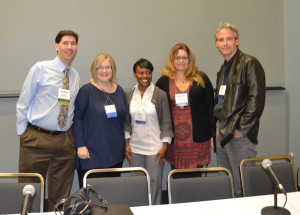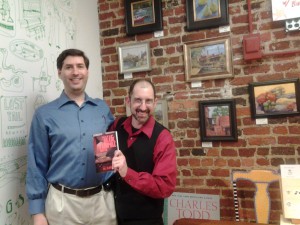
At the 2015 James River Writers conference, I moderated the panel, “Creating Memorable Characters: Writing the Characters Readers Hold in their Hearts.” The illustrious panel included Stacy Hawkins Adams, author of Lead Me Home; Bruce Hollinger, author of The Invention of Fire; Amy Sue Nathan, author of The Good Neighbor; and Kristina Wright, author of Fairy Tale Lust.
I think it went well. Alas, there is no recording or transcript to share. Here is some of what was said that I recall:
- Dialogue should be used to reveal character or move the plot forward, not serve as exposition.
- Use internal monologue sparingly — too much can send the reader skimming.
- Some writers lavish their characters with physical descriptions, while others are more stingy. However much detail you use to convey your characters’ traits, be sure they are easy for your readers to hold in their minds.
- Perfect characters are boring and unrealistic – your protagonists should have flaws just as people do.
- Antagonists/villains are people too. Just as protagonists should have flaws, antagonists should have sympathetic qualities. Readers should understand their motivations, even if they don’t agree with them.
I would have loved to have been a panelist here as characters are what I most enjoy about writing stories. It’s like I’m introducing beloved friends to the world. My aim is to make compelling characters collide and write down the fallout.
